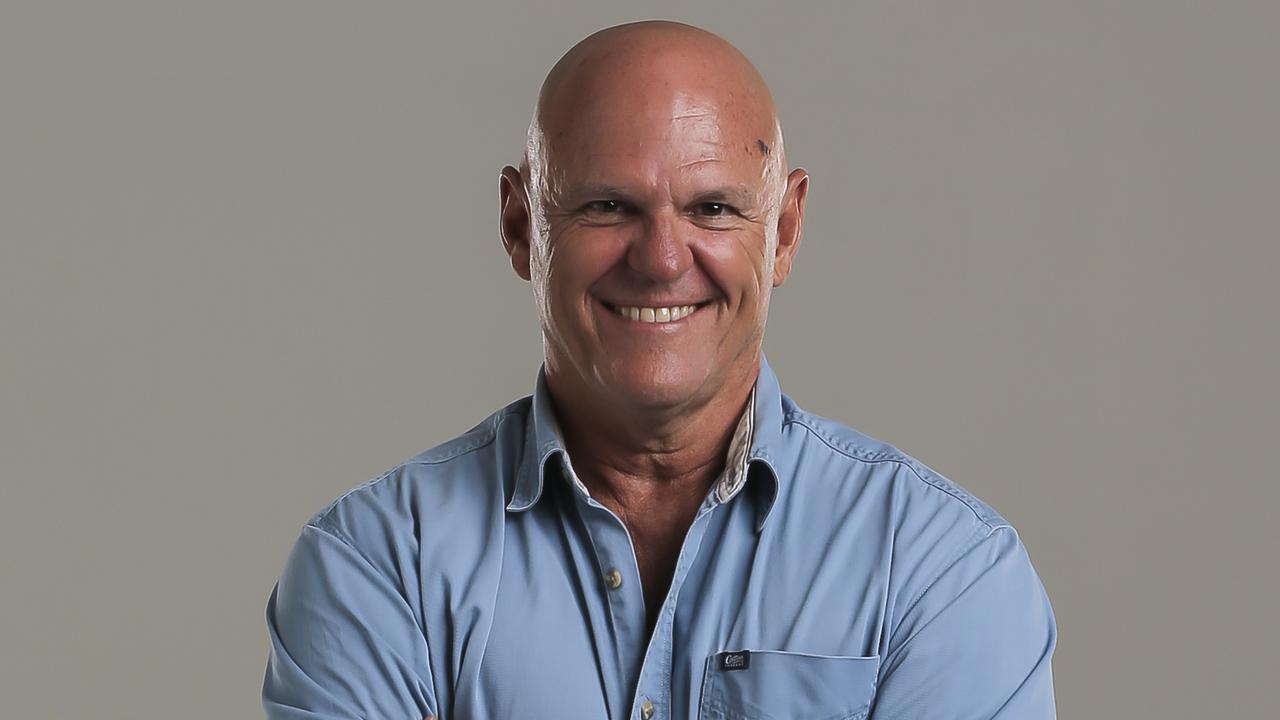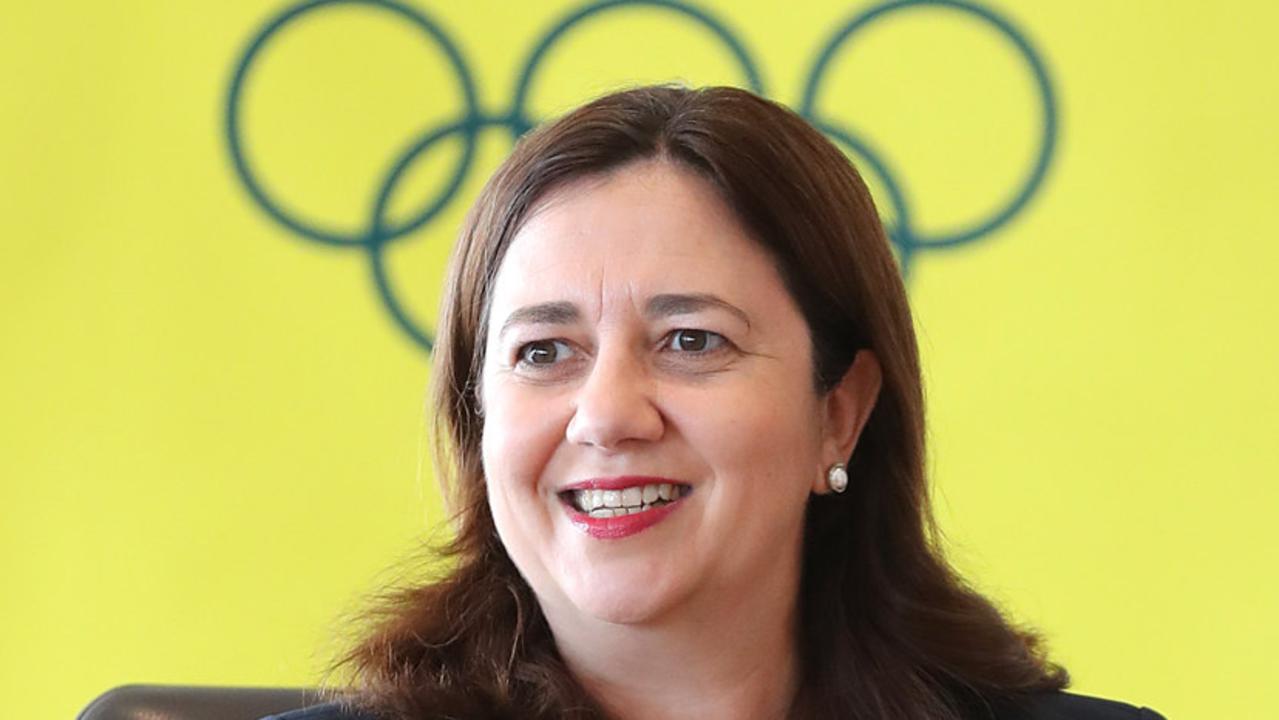OPINION: Ageing gracefully in a culture that worships youth is a challenge for the over 40s
WE’RE living longer yet for those over 40 the focus seems to be on creating the illusion of youth. Isn’t it time we embraced our age?
Opinion
Don't miss out on the headlines from Opinion. Followed categories will be added to My News.
“FORTY is the new 30” isn’t just a commercially created mantra for those refusing to conform to social expectations about ageing, it’s symptomatic of cultural gerontophobia.
Gerontophobia is defined as a fear of ageing and old people. That we suffer this is ironic considering the fastest-growing age group in Australia is the over 65s.
Do you fear growing older? Share your thoughts in the comments below
Yet despite living longer, our energy is focused on turning back the clock or celebrating and rewarding those who give the illusion of having successfully done so.
Youth is the new black. For the over 40s at least.
We’ve been persuaded by a $160 billion-a-year global industry that ageing is a disease we need to cure.
Not only are there beauty products, surgical procedures, fashions and diets to help us maintain a youthful facade, we’re invited to critique, praise and ultimately emulate images of famous women and men who’ve defied nature and don’t “look their age”.
Author of The Beauty Myth, Naomi Wolf, believes things are slowly improving for older women. I’m not convinced.
Celebrity Confidential: Stars who look better with age
While on the one hand we have a spate of movies featuring older casts such as The Best Exotic Marigold Hotel, Quartet, Amour, Las Vegas, and The Expendables, and Judi Dench (among others) as poster-women for septuagenarians, on the other we continue to compare older bodies to younger ones and perceive them as failing societal ideals.
Asked what the popularity of these “gran-com” movies reveal, head of BBC films, Christine Langan explained, “Hopefully, what this shows is that our baby boomers are fit, healthy and affluent. Being in your 60s and 70s doesn’t mean you’re homebound. Sixty is the new 50.”
And there we have it – that God-awful phrase again. I mean, what’s so wrong with being and looking your age?
In terms of life expectancy, appearance, awareness of health and diet, we’ve never had it better in the Western world. Instead of acknowledging how fortunate we are and/or rejoicing in the diverse beauty and the positives years of experience (and the wrinkles to prove it) bestow, we continue to search for the fountain of youth and buy into (literally) empty platitudes that implore us to “look 10 years younger!”
Trying to convince ourselves we’re comfortable with lined faces and non-youthful bodies, we cite iconic fashion and beauty corporations that use older models to spruik their brands. American Apparel famously uses 62-year-old Jacky O’Shaughnessy; 68-year-old actor Charlotte Rampling is the new face of Nars; while 70-year-old Catherine Deneuve is still with Louis Vutton.
Yet, are these gorgeous women typical senior citizens? Isn’t part of the reason they’re chosen precisely because they don’t appear their age and the publicity and sales this “defiance” will attract?

I often wonder what the blueprint for a certain age looks like and who holds the patent.
Anti-ageing is the grist to the morning TV show mill. Women’s magazines use bellicose words to recruit us into chronological warfare. We “fight” the visible signs of ageing, “combat” the wear time imposes on our flesh using weapons of crass destruction such as Botox, fillers and anything else cosmetic and pharmaceutical companies can dream up.
If women aren’t battling ageing, we’re reading books about how to embrace it – Angela Neustatter’s The Year I Turn …, India Knight’s In Your Prime: How to Age Disgracefully, and Mireille Guiliano’s Why French Women Don’t Get Facelifts are just some examples.
Writing for website Daily Life, Sarah Macdonald observes, “the new apartheid in ageing … discriminates between those with good plastic surgeons and those with dodgy ones. The celebration of those we deem to age well – Helen Mirren, Meryl Streep – and the cruel mocking of those who try too hard to stay young like Kim Novak and Liza Minnelli is hardly fair.
“It now seems the only thing as tragic as a woman looking old is if she’s trying too hard not to.”
Instead of being grateful we’re growing older, we pathologise something natural and, frankly, wondrous.
While ageing isn’t easy – and for a woman it’s accompanied by an increasing sense of double standards, invisibility, and sexual and cultural redundancy that’s challenging to process let alone accept – our social gerontophobia makes it harder than it should be, for young and old.
In The Globe and Mail in 2012, Elizabeth Renzetti wrote: “I worry sometimes that old women’s faces will pass out of the public imagination, that they’ll go the way of typewriters and Kodak film, to be replaced by some wind-tunnel simulacrum of youth.”
We’re teaching young people to fear ageing and all the signifiers of a life well lived by replacing these with a world of melamine brows, waxen visages and a repugnance towards the elderly body, ensuring gerontophobia thrives.
Dr Karen Brooks is an associate professor at the UQ Centre for Critical and Cultural Studies.


